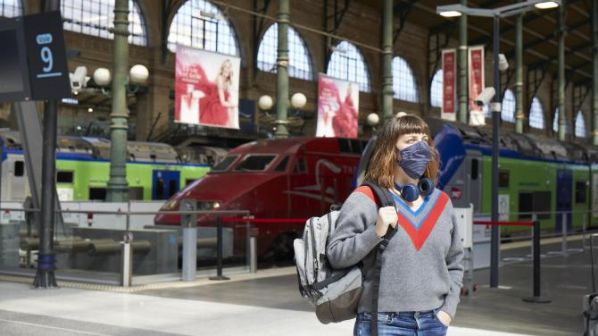The associations say that the coronavirus exposed the vulnerability of the closely interconnected world in which we live. That world, which is reliant on motorised transport to provide this interconnectivity, also heightens the risk of climate change because many of these modes disproportionately generate greenhouse gas emissions.
This is a risk that has not gone away in the current health emergency, and as policymakers initiate the recovery, the associations argue that they should consider rail-based public transport as a sustainable transport solution that is worthy of support and investment.
The associations state that to do this, the sector needs the support of the European Union and its member states. They state that public transport and the supply sector commend the European Commission’s ‘Next Generation EU’ and 2021-2027 Multiannual Financial Framework proposals as well as the recent reassessment of the European Green Deal as the EU’s recovery strategy that requires a boost for rail travel and clean mobility in cities and regions to achieve climate neutrality.
“2021 will be the European Year of Rail, but it must also celebrate sustainable mobility and public transport,” the associations say. “Today, we must maintain investment in new infrastructure projects, new rolling stock, and - above all - research. Given the clear successes of the Shift2Rail Joint Undertaking, it must be extended as Shift2Rail under Horizon Europe to provide the sector an ambitious innovation programme that aims to transform European transport.”
Environmental credentials
The importance of these investments is emphasised by rail’s strong environmental credentials. In Europe, rail accounts for 7.6% of passenger and 17.6% of freight transport but only creates 0.5% of greenhouse gas emissions. In addition, urban rail’s average energy consumption of 0.12kWh per passenger-km is seven-times more energy-efficient than private cars in cities. Much of this efficiency stems from rail’s ability to convey mass numbers of people and goods using vehicles which are largely electric.
But with coronavirus still posing a threat, the mass transport of people is increasingly problematic. Nevertheless, the associations state that the Covid-19 crisis will not go on forever and that people will again share buses, metros and trains. The associations say that they will continue to advocate for a strong public transport network to deliver a world shaped by energy efficiency. However, they say that this alone will not be enough.
“The customer experience must be revolutionised through the creation of a seamless multimodal mobility network that places rail at its backbone and utilises flow management to anticipate consumer patterns,” the statement says. “It is possible to reform cumbersome elements of public transport which act as a barrier to usage. If we act now, public rail transport can be more widely associated with freedom, flexibility and comfort.”
The associations add that as sustainable mobility is rethought, it is essential that transport is no longer synonymous with individual vehicles. To do so, “the public must understand rail’s value to urban life,” which due to its high capacity, can make cities less congested and less polluted while maintaining a multimodal system that equally serves cities and their surrounding regions.
“Public acceptance of autonomous rail vehicle integration into public transport infrastructure is key for improved mobility and diminished environmental impact,” the statement says.
Technology
Technology is the means to deliver this revolution, specifically 5G connectivity which will provide the foundation for autonomous vehicles, the internet of things, and artificial intelligence, and on which the rail sector is already working.
“In order to increase capacity, our networks need more infrastructure to handle ever-increasing mobility demands,” the statement says. “It must be made intelligent to optimise existing system usage. This belief is already shaping how we design future networks.”
The associations say they are well aware of the sector’s obligations to both society and customers. This was emphasised by employees continuing to work to offer an uninterrupted service during the crisis. And with rail and public transport coming through the current crisis, they say that they will continue to serve as required.
“We are committed to building a new mobility paradigm for Europe’s sustainable future,” the associations say.

